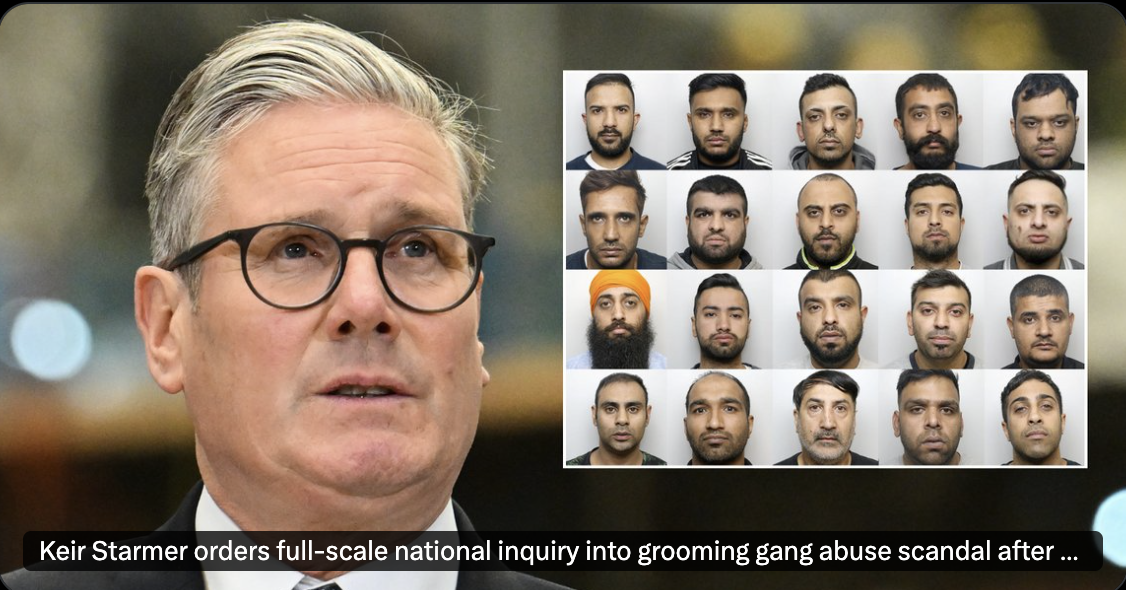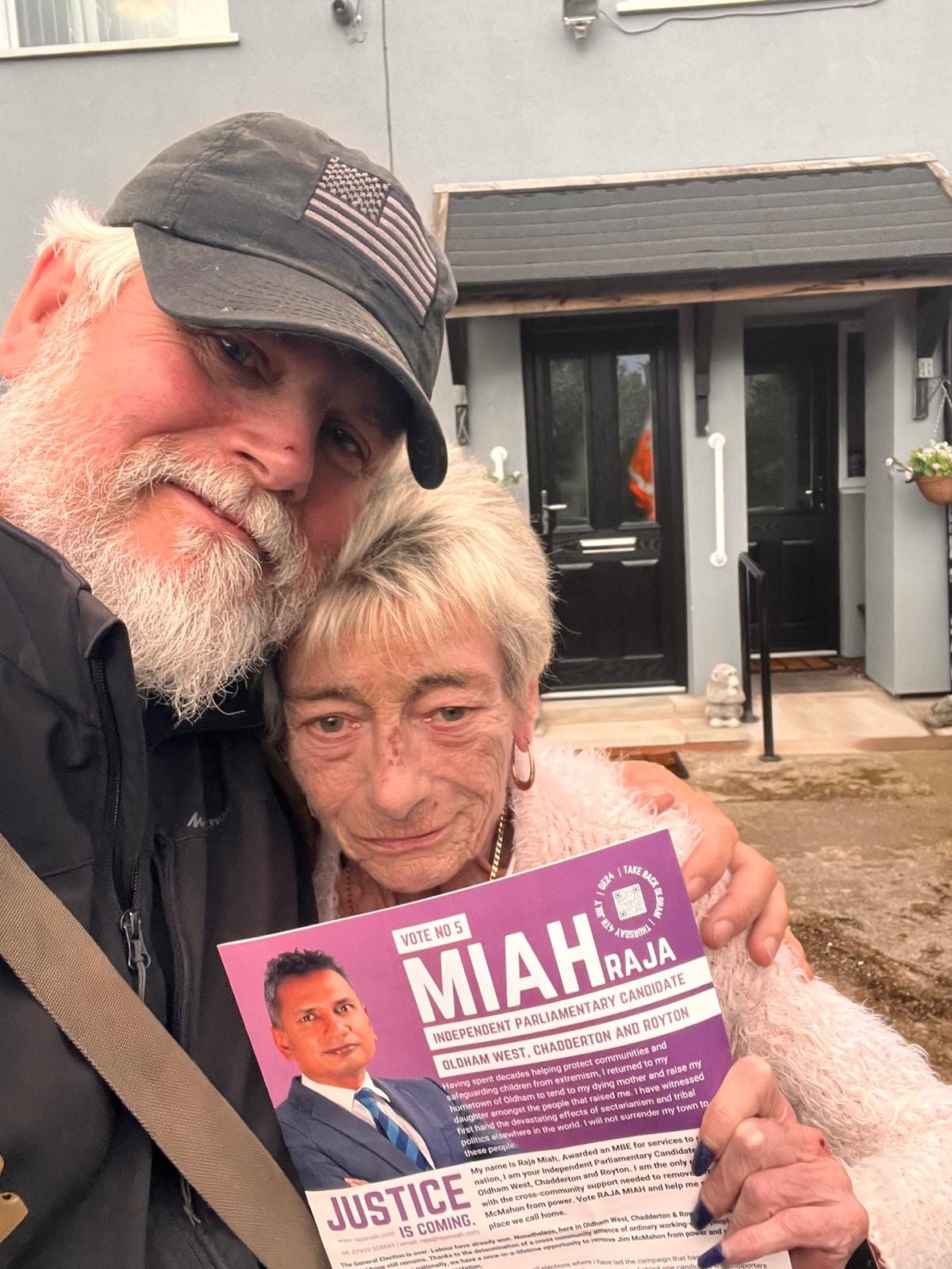The Battle Is Won. The War Continues.

This was a capitulation
After months of denials, deflections, and desperate attempts to kick this particular can down the road, Keir Starmer finally did what he should have done from day one. He announced a national inquiry into the grooming gangs scandal. Not because he wanted to. Not because it was his idea. But because the pressure became too much to bear.
Make no mistake about what happened here. This was not some magnanimous gesture from a government suddenly discovering its moral compass. This was a capitulation. Pure and simple.
For months, Starmer insisted there was no need for a national inquiry. His ministers parroted the same lines about "local solutions for local problems" while survivors waited and the public grew increasingly furious. They thought they could weather the storm, that public attention would drift elsewhere, that the usual political theatre would suffice.
They were wrong. They have never encountered anything like this before.
The U-turn tells us everything we need to know about how power really works in this country.
When ordinary people demand accountability, they are told to be patient, to trust the process, to accept whatever crumbs of justice fall from the establishment table. But when pressure mounts, when even billionaires on social media start asking uncomfortable questions, suddenly the impossible becomes inevitable.
Starmer claims he read "every single word" of Baroness Casey's report and decided it was "the right thing to do." How convenient that his moral awakening coincided so perfectly with mounting political pressure. How fortunate that Casey's findings aligned so neatly with what campaigners have been saying for years.
But here's what matters now: we got our inquiry. The government capitulated. The establishment that spent months explaining why justice could wait has suddenly discovered that justice cannot wait after all.
This is how change happens in Britain today.
Not through polite letters to MPs or carefully worded parliamentary questions. Not through the proper channels or the appropriate procedures. Change happens when the public refuses to be ignored, when survivors refuse to be silenced, when the political cost of inaction becomes greater than the political cost of doing the right thing.
The victory belongs to every person who refused to let this issue disappear. To the survivors who kept speaking out despite attempts to discredit them. To the campaigners who kept demanding answers when the establishment wanted only silence. To ordinary people who recognised that this was not some distant political abstraction but a fundamental test of whether justice means anything in modern Britain.
But if you think this is where the story ends, you have not been paying attention.
The inquiry is not the destination. It is barely the beginning.
Now comes the hard part. Ensuring this inquiry has teeth. Making sure it cannot be watered down, delayed, or manipulated to protect the very people it should be investigating. Guaranteeing that when uncomfortable truths emerge, they are acted upon rather than filed away in some dusty government archive.
The same instincts that made them resist this inquiry will make them try to control it. The same impulses that led to cover-ups in the past will resurface when the spotlight threatens to expose failure at the highest levels. The same establishment that spent months explaining why accountability was unnecessary will spend the next months explaining why accountability must be limited.
We cannot let them.
This moment proves that pressure works. That persistence pays off. That when ordinary people demand extraordinary accountability, the establishment eventually has no choice but to deliver. The question now is whether we have the stomach to see this through to the end.
Because make no mistake: they are counting on us to lose interest, to move on to the next political drama, to assume that announcing an inquiry is the same as delivering justice. They are betting that our attention spans are shorter than their capacity for delay and obfuscation.
Time to prove them wrong again.

Blacklisted by the mainstream media, most people have no idea who I am. I'm Raja Miah MBE. I spent six years leading a small team that exposed how politicians protected the rape gangs.
I’m not Maggie Oliver. I’m not Tommy Robinson. I’m a political campaigner. My purpose is clear: to expose the cover-up, explain the mechanics of corruption, educate the nation, and show people how to fight back. That’s why having failed to silence me, they’re now censoring my interviews. They know how dangerous my voice is.
Politicians, police, press and the CPS were all involved in fabricating evidence to try to falsely imprison me. And when they failed to maliciously prosecute me, the Labour Party itself tried and failed to sue me.
Holding those responsible to account, including those who traded children for votes, won’t happen unless many more of you stand with me. Every day I can continue to campaign, more people learn the truth. I leave it to you to decide what value I bring and why some of the most powerful politicians in the country have tried to shut me down.
If my words have ever helped you make sense of a broken system, if they’ve ever made you feel seen, heard, or hopeful, please don’t scroll past.
🔴 Support the work. This fight is far from over.
Just £3/month or £30/year. That’s 75p a week. Pennies to most -everything to help keep me going.
🔴 Prefer a one-off contribution?
👉 http://BuyMeACoffee.com/recusantnine
👉 http://paypal.me/RecusantNine
I don’t have corporate sponsors. I don’t have a party machine behind me. What I have is more powerful. I have you - ordinary people who understand what’s at stake and why this fight matters.
Despite the odds against us, just look at how far we have come together. We are now so close. Help finish this.
- Raja 🙏